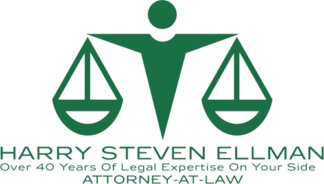Best Brokerage Lawyers in Farmington Hills
Share your needs with us, get contacted by law firms.
Free. Takes 2 min.
Free Guide to Hiring a Real Estate Lawyer
List of the best lawyers in Farmington Hills, United States
About Brokerage Law in Farmington Hills, United States:
Brokerage law in Farmington Hills, United States encompasses the legal aspects of real estate transactions, particularly related to the buying, selling, leasing, or property management of commercial and residential properties. This area of law governs the relationships between brokers, agents, buyers, sellers, landlords, and tenants in real estate transactions.
Why You May Need a Lawyer:
You may need a lawyer in brokerage law if you are involved in a real estate transaction and require legal representation to ensure your rights are protected, contracts are legally binding, and all parties involved fulfill their obligations. Common situations where legal help may be needed include disputes over contracts, property title issues, broker negligence, fraud, breach of fiduciary duty, or zoning and land use regulations.
Local Laws Overview:
In Farmington Hills, United States, brokerage law is governed by state laws, including regulations outlined in the Michigan Real Estate Brokers Act, which sets forth the licensing requirements for real estate brokers, agents, and salespersons. Additionally, local ordinances and regulations may impact real estate transactions, such as property taxes, zoning laws, and environmental regulations.
Frequently Asked Questions:
1. What is the role of a real estate broker?
A real estate broker acts as a licensed intermediary between buyers and sellers in real estate transactions, helping facilitate the process and ensuring legal compliance.
2. Do I need a real estate lawyer when buying or selling a property?
While not mandatory, having a real estate lawyer can help protect your interests, review contracts, and provide legal advice throughout the transaction.
3. What is a fiduciary duty in real estate transactions?
A fiduciary duty requires real estate agents and brokers to act in the best interests of their clients, putting their needs above their own and disclosing any conflicts of interest.
4. How can I resolve a dispute with my real estate broker?
If you have a dispute with your real estate broker, you may consider mediation, arbitration, or seeking legal action through the courts, depending on the nature of the issue.
5. Are there specific regulations for commercial real estate transactions in Farmington Hills?
Yes, commercial real estate transactions may be subject to additional regulations, such as zoning laws, environmental regulations, and business licensing requirements.
6. Can a real estate lawyer assist with lease agreements?
Yes, a real estate lawyer can review and negotiate lease agreements to ensure they comply with state and local laws and protect your interests as a landlord or tenant.
7. What are the consequences of breaching a real estate contract?
Breaching a real estate contract may result in legal action, such as financial penalties, damages, or specific performance remedies to enforce the terms of the agreement.
8. How can I verify the credentials of a real estate broker?
You can verify the credentials of a real estate broker by checking their license status with the Michigan Department of Licensing and Regulatory Affairs or asking for references from previous clients.
9. What is the statute of limitations for filing a lawsuit in a real estate dispute?
The statute of limitations for filing a lawsuit in a real estate dispute varies depending on the nature of the claim and may range from a few months to several years, so it is essential to seek legal advice promptly.
10. Can a real estate lawyer help with property tax assessments?
Yes, a real estate lawyer can assist in challenging property tax assessments and appealing valuations to potentially lower your property tax liability.
Additional Resources:
For further information on brokerage law in Farmington Hills, United States, you may contact the Michigan Association of Realtors, the State Bar of Michigan, or consult the Michigan Department of Licensing and Regulatory Affairs for licensing requirements and regulations.
Next Steps:
If you require legal assistance in brokerage law in Farmington Hills, United States, consider reaching out to a qualified real estate lawyer who specializes in real estate transactions and litigation. They can help guide you through the legal process, protect your interests, and ensure a successful outcome in your real estate endeavors.
Lawzana helps you find the best lawyers and law firms in Farmington Hills through a curated and pre-screened list of qualified legal professionals. Our platform offers rankings and detailed profiles of attorneys and law firms, allowing you to compare based on practice areas, including Brokerage, experience, and client feedback.
Each profile includes a description of the firm's areas of practice, client reviews, team members and partners, year of establishment, spoken languages, office locations, contact information, social media presence, and any published articles or resources. Most firms on our platform speak English and are experienced in both local and international legal matters.
Get a quote from top-rated law firms in Farmington Hills, United States — quickly, securely, and without unnecessary hassle.
Disclaimer:
The information provided on this page is for general informational purposes only and does not constitute legal advice. While we strive to ensure the accuracy and relevance of the content, legal information may change over time, and interpretations of the law can vary. You should always consult with a qualified legal professional for advice specific to your situation.
We disclaim all liability for actions taken or not taken based on the content of this page. If you believe any information is incorrect or outdated, please contact us, and we will review and update it where appropriate.










